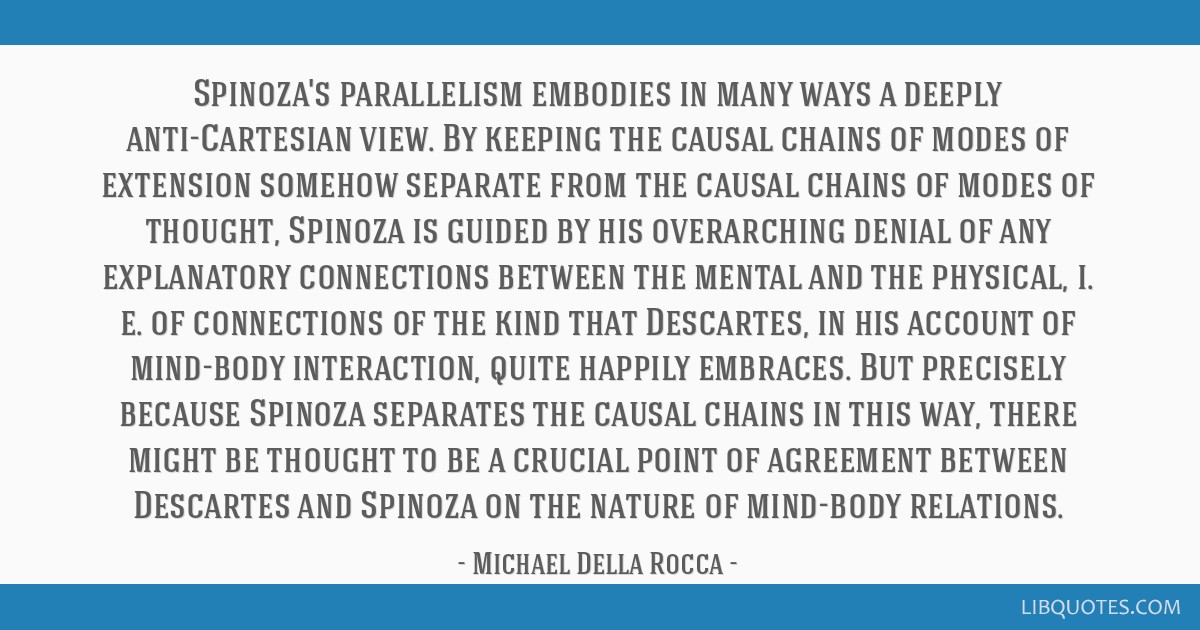Spinoza's parallelism embodies in many ways a deeply anti-Cartesian view. By keeping the causal chains of modes of extension somehow separate from the causal chains of modes of thought, Spinoza is guided by his overarching denial of any explanatory connections between the mental and the physical, i. e. of connections of the kind that Descartes, in his account of mind-body interaction, quite happily embraces. But precisely because Spinoza separates the causal chains in this way, there might be thought to be a crucial point of agreement between Descartes and Spinoza on the nature of mind-body relations.
Spinoza (2008) - Three: The Human Mind























